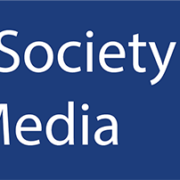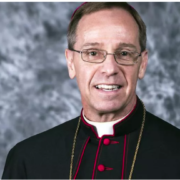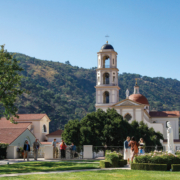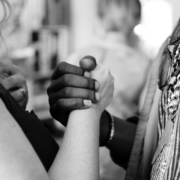The Archdiocese of Indianapolis has been fighting several battles for the protection of Catholic education, and last month’s federal court victory was an especially exciting step forward.
A federal district court in Indiana ruled that the Archdiocese and its Roncalli Catholic High School have the First Amendment right to uphold moral standards — not only for religion teachers, as the U.S. Supreme Court affirmed last summer in its Our Lady of Guadalupe School ruling, but also for other employees who aid in the Christian formation of students.
“Catholic schools focus on the complete person, made in God’s image and likeness, not just on the mind or on a subject matter,” wrote my colleague Dr. Dan Guernsey last year. “Learning and formation happen concurrently. They are entwined.”
His position paper, “All Employees Matter in the Mission of Catholic Education,” made the important argument that every employee of a Catholic school is important to its mission of educating and forming young people in the Catholic faith. Although last year’s Supreme Court ruling focused on a Catholic school religion teacher, the ministerial exception — which prevents federal courts from interfering in employment decisions that substantially involve religious duties — ought to also protect a faithfully Catholic school or college with regard to teachers of all subjects as well as other employees and administrators.
The Roncalli case centers on a school guidance counselor who worked closely with students. Counseling is a duty that relates just as strongly to the Christian formation of students as teaching, and Catholic school counselors must model the moral teachings of the Church as an example to students. Sadly, the Roncalli counselor entered into a same-sex marriage and was dismissed.
Roncalli and the Archdiocese of Indianapolis did not shy away from the Church’s moral beliefs in their employee policies and in their legal defense. By establishing a clear moral expectation for employees, the school has a strong claim to First Amendment protections under the Free Exercise Clause. More important, it ensures that the good of its students is first and foremost protected.
Much More to Come
The struggle is not over for Archbishop Charles Thompson and his Indianapolis schools, but the outlook is brighter.
Although the guidance counselor is appealing the Roncalli decision to the 7th Circuit Court of Appeals, that is the same court that in July dismissed a lawsuit by a Chicago parish music director who also entered into a same-sex union. The court invoked the ministerial exception, rejecting the plaintiff’s argument that the exception covers only complaints about hiring and firing decisions and not claims of a hostile work environment.
“A Catholic school has freedom to hire and fire ministers based on alignment with the Catholic Church’s religious teachings about sex, sexual orientation, and marriage,” the Newman Society noted in an amicus brief in the case.
“But if a Catholic school minister engages in a course of conduct that violates the Catholic Church’s teachings, and the school persistently communicates that the minister has strayed from the school’s moral expectations and should repent,” then the school could have been forced to stand trial had the 7th Circuit agreed to narrow the scope of the ministerial exception.
Another guidance counselor from Roncalli, who was also fired for entering into a same-sex union, is pursuing a separate lawsuit. That case is before the same federal judge who dismissed the similar case last month.
Meanwhile, same-sex partners at two other Indianapolis-area Catholic schools have fought the Archdiocese and its moral standards for school employees. One of them, a teacher who was dismissed from Cathedral Catholic High School in Indianapolis, saw his lawsuit dismissed in Marion County Superior Court in May, but he is appealing the ruling.
His legally married partner still teaches at Brebeuf Jesuit Preparatory School, which refuses to abide by archdiocesan policy. Archbishop Thompson took action in 2019 to declare the school no longer Catholic and forbid Mass in its chapel, but the school appealed to the Vatican, which for two years has failed to provide any resolution.
So there is much more to come, but the rulings this summer reinforce the scope of the ministerial exception and give hope to Catholic educators. Perhaps the most important lesson that can be drawn in the meantime is that Catholic schools and colleges should continue to ensure that employees are committed wholly to the mission of the school and the Church. It’s legally protected and it’s the right thing to do for Catholic families.
Every employee in a Catholic school, from the principal to the gym teacher, is important to the mission of Catholic education. Clear and consistently enforced policies that expect employees to model moral behavior is a key part of leading young people to Christ.
This article first appeared at the National Catholic Register.







